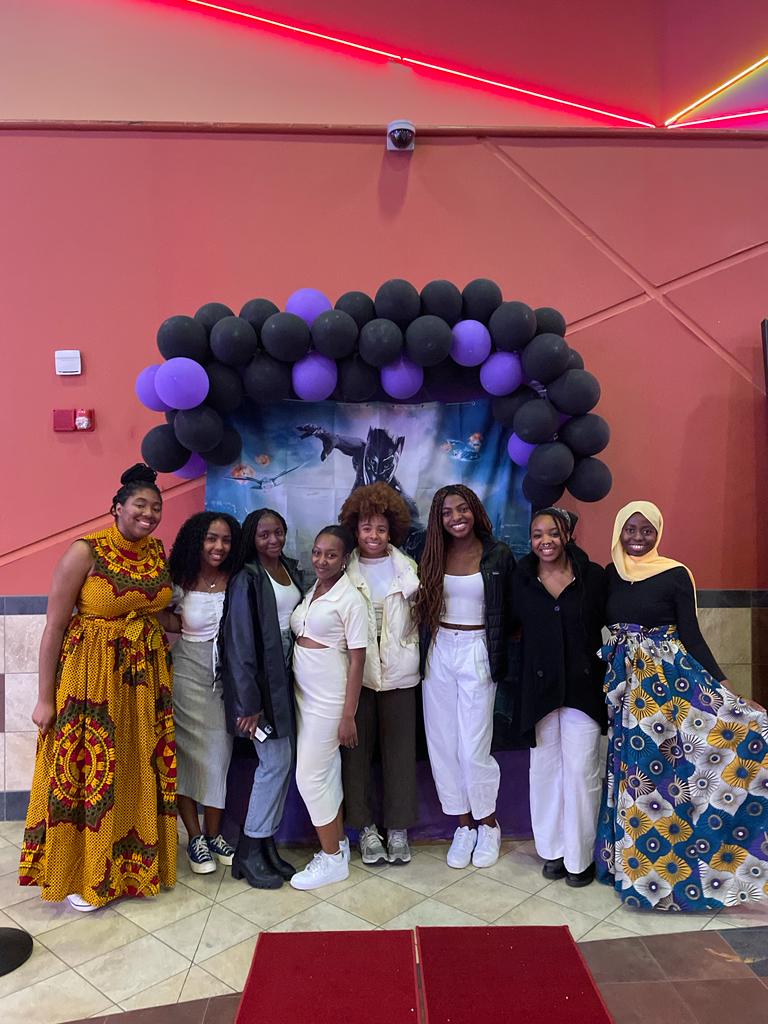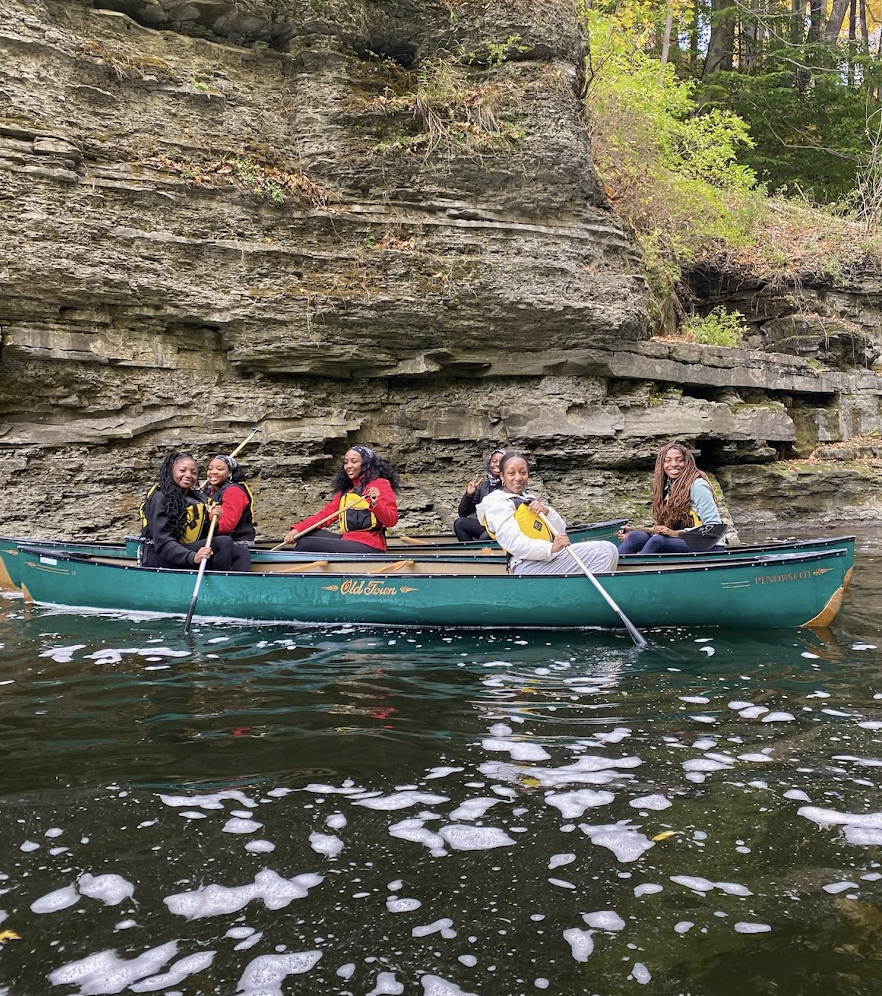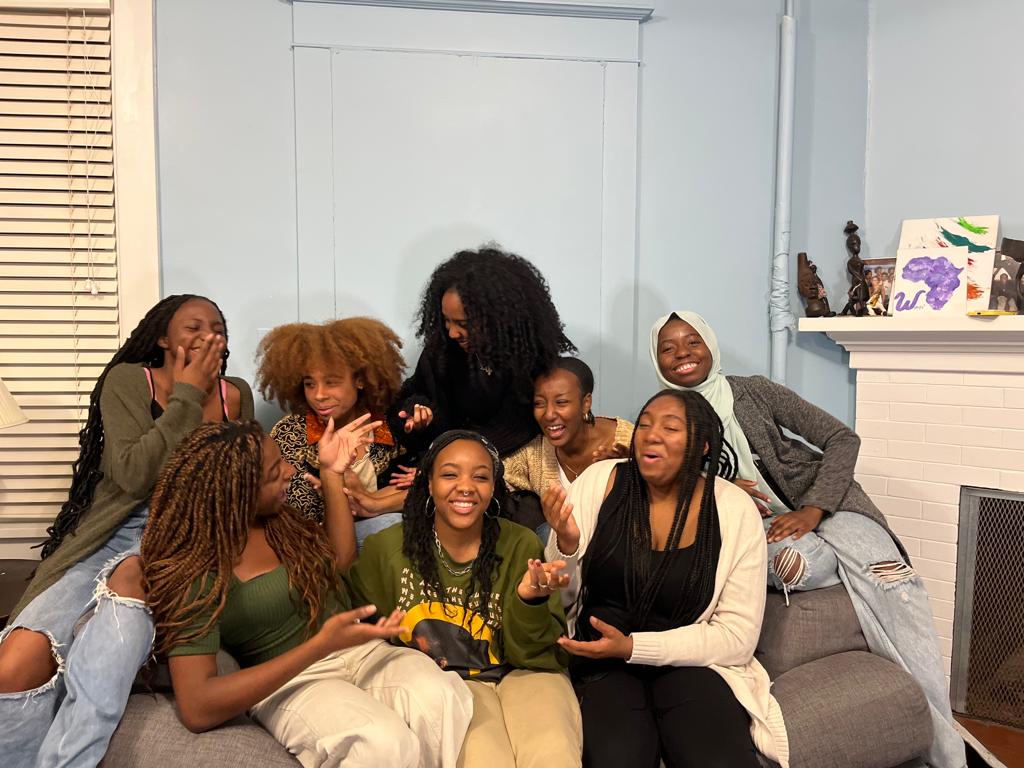Wari co-op creates space for women of color to build community
By Kelly Kuehn, Student & Campus Life
Nnenna Ochuru ’25 was heading into her second year at Cornell when she started thinking about what she wanted out of her residential experience. She secured other housing on campus as her first year wrapped up, but she kept thinking about another on-campus space: the Wari co-op. Ochuru followed Wari on social media and each post about their events and community piqued her interest.
“I went to a high school that didn't have a lot of Black students,” Ochuru says. “I thought Wari would be a really special space to be with other Black women on campus and build sisterhood with each other.”

Sam Ivey ’24 was looking for a similar experience when she heard about Wari. Her friend lived in the co-op and told her about the strong connection felt among her housemates. She was looking for that kind of connection with fellow Black women on campus and Moseyed Wari the spring semester of her second year. She applied and was accepted into the co-op and remembers how warm and accepting the community was from day one.
“People helped me move my stuff into my room and knocked on my door to welcome me,” Ivey says. “Having that experience on the first day was really welcoming.”
Bringing communities together and shaping Cornellians’ experiences
The Wanawake Wa Wari co-op, commonly called Wari, was founded in 1968 by a group of Black women striving to create a safe residential space on campus to build community and promote self-awareness and confidence. Today, the co-op is home to 10 women of color who keep that spirit alive.
“Creating spaces with amazing turnout and missions is something I love about Wari,” Ochuru says. “That drive to make sure other people also feel the sisterhood and community of Wari really brings us together.”
One way the women of Wari come together is through their Asante Sana series. Named for the Swahili expression for gratitude, the series encourages residents to engage in conversation and relaxation while participating in fun activities like painting and pumpkin carving.
The co-op also plans house activities like canoeing and trips to a local farmer’s market to strengthen their sisterhood and gives residents the space to enjoy special impromptu bonding moments.
“Those talks you have with one another in the kitchen at 2 a.m. about everything and anything,” says Ochuru. “Getting advice and talking about life makes you feel seen.”

While focused on building community within its walls, Wari’s ties stretch beyond 208 Dearborn Place. Residents work closely with Black organizations on campus to host events that promote collaboration and community, like the first Black Women Delegate Meeting. The event, held in August 2023, brought female Black organizations on campus together to discuss elevating each other’s voices through future events and initiatives.
Wari has also provided opportunities for Ochuru and Ivey to explore their identities. Collaborating with their housemates and Black organizations on campus has introduced them to various people and perspectives, broadening their understanding of Cornell’s Black community.
“You’re able to see how diverse the Black community is at Cornell because you're collaborating with different organizations and students in the Black community,” Ivey says. “Because of that, you're also able to see how diverse your own identity as a Black person can be.”
Learn more about the Wari co-op
Wari has influenced Ochuru in several ways, but one of the most powerful things she’s learned is the impact and importance of community—something she holds close to heart following the COVID-19 pandemic.
“It really made me value human connection and I made that a priority in my life,” Ochuru says. “Wari has definitely shown me how important that is and how community can be found in every single aspect of your life.”
If students are on the fence about visiting Wari or another Cornell co-op, Ivey has one piece of advice: Go for it.
“I would recommend Wari to anybody who asks about it,” she says. “It’s been really influential on my life and how I think of the world. I found Wari when I really needed it, and I hope everyone else does too.”

What waits for you at Wari or one of Cornell’s other cooperative living spaces? Learn more about co-op living by emailing co-ops@cornell.edu.
Cover photo provided by Nnenna Ochuru
